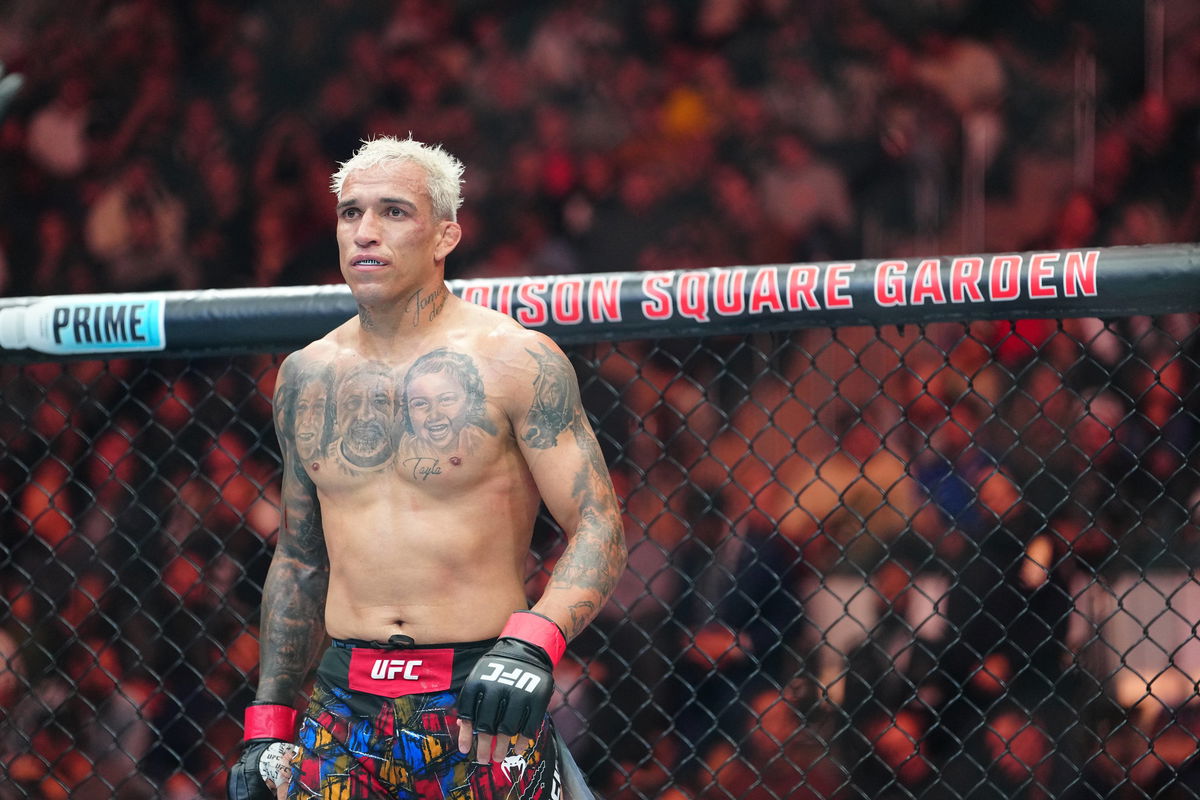
Imago
Madison Square Garden NEW YORK CITY, NY -NOVEMBER 16:Charles Oliveira and Michael Chandler meet in the octagon for a 3-round bout for UFC309 – Jones vs Miocic at Madison Square Garden on November 16, 2024 in New York City, NY Photo by Louis Grasse/PxImages Louis Grasse / SPP PUBLICATIONxNOTxINxBRAxMEX Copyright: xLouisxGrassex/xSPPx spp-en-LoGr-lrg2411164271670_UFCVegas309

Imago
Madison Square Garden NEW YORK CITY, NY -NOVEMBER 16:Charles Oliveira and Michael Chandler meet in the octagon for a 3-round bout for UFC309 – Jones vs Miocic at Madison Square Garden on November 16, 2024 in New York City, NY Photo by Louis Grasse/PxImages Louis Grasse / SPP PUBLICATIONxNOTxINxBRAxMEX Copyright: xLouisxGrassex/xSPPx spp-en-LoGr-lrg2411164271670_UFCVegas309
Charles Oliveira is once again preparing for battle. The former lightweight champion will headline UFC Rio on October 11, taking on Mateusz Gamrot after Rafael Fiziev withdrew due to a knee injury. The Brazilian superstar, known for his golden hair and dazzling submissions, is now fighting not just for victory, but to remind the world why ‘Do Bronxs’ is still one of the most dangerous names inside the Octagon despite his loss to Ilia Topuria at UFC 317.
Watch What’s Trending Now!
But beyond the Octagon, fans often wonder, who is Charles Oliveira, really? Where does he come from? What fuels his faith and identity? And perhaps the most common question, does ‘Do Bronxs’ actually speak English? Let’s break down the origins, beliefs, and voice of the 35-year-old star!
ADVERTISEMENT
Charles Oliveira’s Nationality and Birthplace
Charles Oliveira was born on October 17, 1989, in Vicente de Carvalho, a neighborhood in Guarujá, São Paulo, Brazil. The region, known for its coastline and humble roots, shaped the man who would one day conquer the UFC.
Growing up in poverty, Oliveira’s story began not in a gym, but in the streets. Through those early struggles, Oliveira found not only resilience but a sense of purpose that would carry him through the toughest fights of his life.
ADVERTISEMENT
View this post on Instagram
He earned the nickname “Do Bronxs”, which translates to “from the Bronx.” In Brazil, “Bronx” is slang for the favelas, or poor neighborhoods. The name became more than a label; it became an identity. Oliveira wears it like armor, proudly representing the streets that built him.
ADVERTISEMENT
But while his nationality is clear, his roots run deeper than just geography.
Top Stories
Dana White’s Nightmare Continues as UFC 325 ‘Robbery’ and Paramount+ Issues Anger Fans
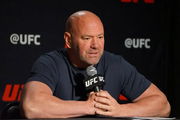
UFC Star Gives Classy Response to Inappropriate Question About Ian Garry’s Family Amid Race to Fight Islam Makhachev
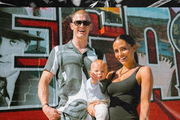
UFC 325 Payouts: How Much Will Alexander Volkanovski, Diego Lopes, and Others Earn
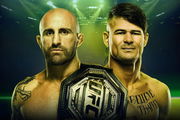
Jon Jones Reacts to His Name Coming Up in Epstein Files
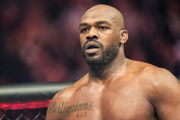
UFC 325 Fans Turn On Mauricio Ruffy as Conor McGregor Receives New Contender for White House Fight
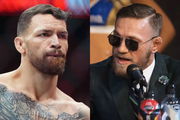
Charles Oliveira’s Ethnicity and Cultural Background
Oliveira is ethnically Brazilian, a heritage that reflects the cultural melting pot of São Paulo. His upbringing in the favelas exposed him to the raw, real side of Brazil, one where community and survival go hand in hand. He had a humble beginning, and his family struggled to make ends meet. Before he started his training in BJJ, Oliveira used to sell cheese salad with his mom.
ADVERTISEMENT
They used to sell the salad from a trailer to make ends meet. Through this work, he was introduced to many people and came across people who trained in BJJ. Because of financial restraints, he could not pay the training fees, but he was allowed to train for free by the coach.
When Oliveira was seven years old, a doctor diagnosed him with rheumatic fever and a heart murmur. It severely affected his ankle, and he was told he could develop paraplegia. However, Oliveira was introduced to Brazilian Jiu-Jitsu and started training in it at the age of 12. He won his first tournament as a white belt in 2003. Since then, he hasn’t looked back. But what about ‘Do Bronx’s religion?
ADVERTISEMENT
Charles Oliveira’s Religion and Faith
‘Do Bronx’ is an avid follower of Christianity. He often says, “eu sou iluminado.” The English translation of the Portuguese phrase is “I am illuminated.” Needless to say, this phrase reflects Oliveira’s belief in Christ, since illumination is God’s blessing for a believer when he willingly submits himself to the glory of the gospel.
The former lightweight champion has also spoken a few words about faith. He said, “Faith can move mountains. If you believe and have faith, you will climb this building without any equipment…You experience things you never thought you would. That’s faith.”
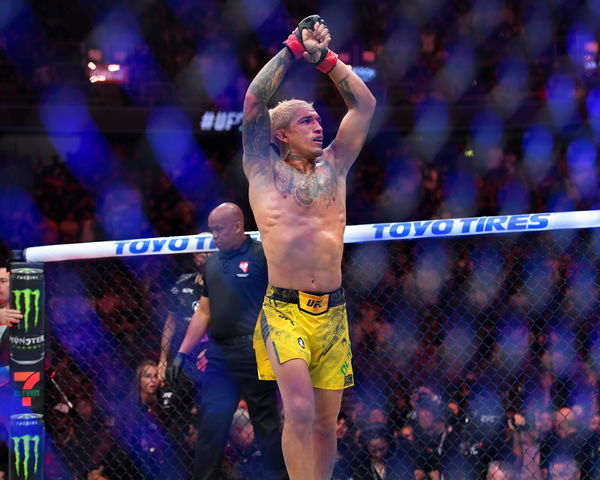
Imago
April 13, 2024, Las Vegas, Nevada, USA: ARMAN TSARUKYAN 22-3 of Yerevan, Armenia defeats CHARLES OLIVEIRA 34-10 of Sao Paolo, Brazil by split decision during UFC 300 at the T-Mobile Arena in Las Vegas Las Vegas USA – ZUMAo117 20240413_zsp_o117_075 Copyright: xMikaelxOnax
Talking about being the one to spread the word of Christ, Oliveira said, “I was chosen, I was chosen to talk about God. I was chosen to show that a kid from a slum community can be successful, I was chosen to show that your faith in God can move mountains.”
ADVERTISEMENT
From health struggles to championship belts, Charles Oliveira credits it all to faith. For him, it isn’t just about winning fights, it’s about proving that belief can rewrite destiny. But what about his voice beyond faith? Can the Brazilian warrior connect with fans in English too?
ADVERTISEMENT
Can Charles Oliveira Speak English? What Other Languages Does He Know?
Hailing from Brazil, Charles Oliveira’s native language is Portuguese, and he speaks it fluently, sometimes too fluently! Known for his rapid-fire speech, Oliveira often needs a translator to bridge the gap between his Portuguese and the UFC’s global audience.
While he does understand and speak some English, it’s not yet his strong suit. Most of his interviews require a native Brazilian translator to ensure his words reach fans clearly. Still, Oliveira is improving. After his victory at UFC 289, fans were thrilled to hear him speak directly in English: “The champion has a name—Charles Oliveira, brother!” It was a brief but powerful moment, showing just how far he’s come, not just as a fighter, but as a global icon.
In a past interview, he confessed, “I always believed and had a lot of faith that any dream I had, I could achieve it. Of course, as with any kid at the time, I just wanted to play football and have a future in that. But sports in general in Brazil are complicated; there aren’t many opportunities for everyone, so I knew it would be hard. But I just kept my faith and believed everything would happen the way I wanted.”
ADVERTISEMENT
As such, Charles Oliveira’s story is more than just a tale of fights and titles; it’s a story of faith, language, and identity. Born in the favelas of Guarujá, raised by faith, and carried by dreams, ‘Do Bronxs’ has now become a symbol of hope for millions!
ADVERTISEMENT
ADVERTISEMENT
ADVERTISEMENT